Search
for
Sort by
Research
30-60 / 1000+ results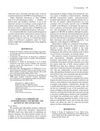
research Marie-Unna Hereditary Hypotrichosis: Case Report and Review of the Literature
Marie-Unna Hereditary Hypotrichosis is a rare genetic condition causing sparse hair growth, requiring specific recognition for proper care.

research Marie-Unna Hereditary Hypotrichosis
A 12-year-old boy with a rare genetic condition has progressive hair loss with no effective treatment.

research Molecular Basis of Hereditary Hair Diseases
Certain gene variants can cause inherited hair diseases, which are important to diagnose and understand for patient care.
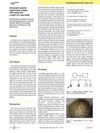
research Autosomal Recessive Hypotrichosis Simplex With Woolly Hair: A Report of a New Family
Two siblings were found to have a genetic condition causing progressive hair loss and woolly hair, which may often be misdiagnosed.

research Genetics of Structural Hair Disorders
The document concludes that over 500 genes are linked to hair disorders and this knowledge is important for creating new treatments.

research Inherited Disorders of the Hair
The document explains the genetic causes and characteristics of inherited hair disorders.
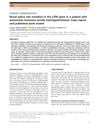
research Novel Splice Site Mutation in the LIPH Gene in a Patient with Autosomal Recessive Woolly Hair/Hypotrichosis: Case Report and Published Work Review
A new mutation in the LIPH gene was found to cause a rare hair disorder in a Japanese boy.

research Identification of Factors Contributing to Phenotypic Divergence via Quantitative Image Analyses of Autosomal Recessive Woolly Hair/Hypotrichosis with Homozygous c.736T>A LIPH Mutation
Different hair fiber development might explain why hair loss severity varies in patients with a specific genetic mutation, and treatments that thicken hair could help.
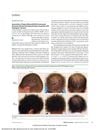
research Association of Topical Minoxidil With Autosomal Recessive Woolly Hair/Hypotrichosis Caused by LIPH Pathogenic Variants
Minoxidil solution applied twice daily improved hair growth in patients with Woolly Hair/Hypotrichosis due to LIPH gene issues, with mild side effects.

research A Novel Splice Site Mutation in LIPH Identified in a Japanese Patient with Autosomal Recessive Woolly Hair
Researchers found a new genetic mutation linked to a hair condition in a Japanese boy.

research Clinical and Molecular Genetic Studies in Hereditary Hair Loss
Researchers found a genetic link for hereditary hair loss but need more analysis to identify the exact gene.
research Isolated Autosomal Recessive Woolly Hair/Hypotrichosis: Genetics, Pathogenesis, and Therapies
Topical minoxidil may help treat a rare genetic hair condition with no fully effective treatments yet.
research Highly Prevalent LIPH Founder Mutations Causing Autosomal Recessive Woolly Hair/Hypotrichosis in Japan and the Genotype/Phenotype Correlations
LIPH mutations in Japan cause varying degrees of hair loss and woolly hair.

research Trichodystrophies: A Hair-Raising Differential Diagnosis
The guide helps doctors diagnose hair problems by suggesting a thorough patient history, physical exams, and various diagnostic tools.

research Hair Loss in Infancy and Childhood
The document concludes that proper diagnosis and management of hair loss in children require a detailed examination and understanding of various hair disorders.

research Prognosis and Management of Congenital Hair Shaft Disorders Without Fragility—Part II
Some congenital hair disorders improve with age and can be managed with treatments like minoxidil, retinoids, supplements, and gentle hair care, but there's no cure.

research JAAD Grand Rounds Quiz on Dermatological Conditions
The document explains the diagnosis and characteristics of woolly hair nevus and alopecia neoplastica.
research Treatment of Hereditary Hypotrichosis Simplex of the Scalp with Oral Minoxidil and Growth Factors
Oral minoxidil and growth factors improved hair density and thickness in a girl with hereditary hair loss.

research Acquired Progressive Kinking of Hair
Acquired Progressive Kinking of Hair is likely an early sign of male pattern baldness.

research Hair and Nail Disorders of Childhood
The document concludes that various childhood hair and nail disorders exist, some may improve on their own, and advances in genetics and immunology could enhance treatment and counseling.

research A Novel Homozygous Variant in the DSP Gene Underlies the First Case of Non-Syndromic Form of Alopecia
A new gene variant in the DSP gene is linked to a unique type of hair loss.
research Human Hair Growth Deficiency Is Linked to a Genetic Defect in the Phospholipase Gene LIPH
A genetic mutation in the LIPH gene causes hair loss and growth defects.
research Keys to the Diagnosis of Hair Shaft Disorders: Part II
Hair shaft disorders, often due to genetics or environment, lack specific treatments but can be managed with gentle hair care and may improve with age or topical treatments.

research Keratin Disorders: From Gene to Therapy
New treatments targeting specific genes show promise for treating keratin disorders.
research A KRT71 Loss-of-Function Variant Results in Inner Root Sheath Dysplasia and Recessive Congenital Hypotrichosis of Hereford Cattle
A specific genetic change in the KRT71 gene causes a hair loss condition in Hereford cattle.

research Optimal Management of Hair Loss (Alopecia) in Children
Effective management of children's hair loss involves accurate diagnosis, various treatments, and supportive care.
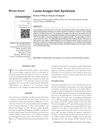
research Loose Anagen Hair Syndrome
Loose Anagen Syndrome is a hair condition where hairs can be easily pulled out, mainly affecting young girls, and may improve on its own or with treatment.

research Prognosis and Management of Congenital Hair Shaft Disorders with Fragility—Part I
Some congenital hair disorders improve in childhood or with treatments like minoxidil and retinoids, while others like Netherton syndrome and trichothiodystrophy have a poor prognosis.

research Cold X5 Hairlaser Used to Treat Male Androgenic Alopecia and Hair Growth: An Uncontrolled Pilot Study
The X5 Hairlaser might help treat male hair loss, but more research is needed.